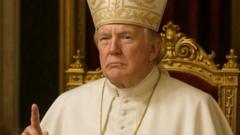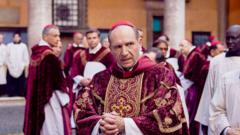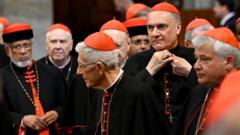As the influential Pope Francis passes away, progressive Christians reflect on their path forward without his guidance, amidst concerns over the growing influence of conservative Christian ideologies.
The Future of Progressive Christianity Without Pope Francis

The Future of Progressive Christianity Without Pope Francis
The passing of Pope Francis leaves progressive Christians grappling with the future of their beliefs and values amidst rising conservative power.
With the recent passing of Pope Francis, a significant figure in progressive Christianity, many believers are left pondering the future of their movement. For 12 years, he was a beacon of hope, using his platform to advocate for the marginalized and the poor, and counterbalance a rise in conservative Christian ideologies. His unique blend of compassion and humility attracted millions, including those beyond the Catholic faith, who saw in him a champion for their values.
Now, progressive Christians in the United States, both Catholics and non-Catholics, voice their insecurities about the path ahead. "This moment is critical now," asserted Bishop Sean W. Rowe of the Episcopal Church. With a resurgent conservativism co-opting Christian messages to suit nationalistic agendas, Bishop Rowe stressed that articulating a message of love, righteousness, and the core teachings of Jesus has never been more urgent.
The aftermath of Pope Francis’ death raises pivotal questions for these theologians and believers. How do they maintain their commitment to the Sermon on the Mount when faced with diverging ideologies? Bishop Rowe expressed the need to reclaim and reinterpret the Christian narrative away from politics that distort its essence. Although the future seems uncertain, progressive Christians are determined to uphold their values in this evolving religious landscape, seeking to inspire change and reaffirm their commitment to the marginalized and oppressed.




















